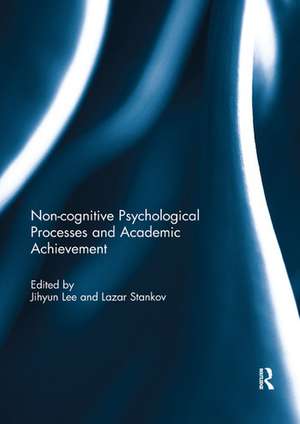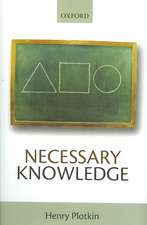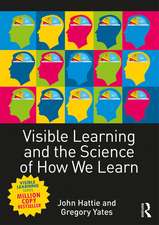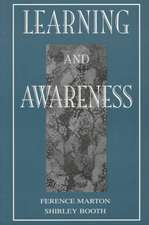Noncognitive psychological processes and academic achievement
Editat de Jihyun Lee, Lazar Stankoven Limba Engleză Paperback – 12 ian 2018
This book suggests that by focusing on students’ self-beliefs, the education system may be in a position to improve cognitive performance, since individual students’ self-beliefs may be more malleable than the cognitive processes involved in acquiring academic knowledge. Focusing on these non-cognitive psychological processes is also likely to be more effective in improving performance than system-wide interventions involving changes in policy for both public and private sector educators. This book will be useful to educational researchers, school leaders, administrators, counsellors, and teachers, in guiding students’ attitudes towards learning and school performance. It will also provide students in psychology and education with broad and nuanced insights into the drivers of school achievement. This book was originally published as a special issue of Educational Psychology.
| Toate formatele și edițiile | Preț | Express |
|---|---|---|
| Paperback (1) | 422.59 lei 43-57 zile | |
| Taylor & Francis – 12 ian 2018 | 422.59 lei 43-57 zile | |
| Hardback (1) | 997.90 lei 43-57 zile | |
| Taylor & Francis – 22 dec 2015 | 997.90 lei 43-57 zile |
Preț: 422.59 lei
Nou
Puncte Express: 634
Preț estimativ în valută:
80.88€ • 83.35$ • 68.29£
80.88€ • 83.35$ • 68.29£
Carte tipărită la comandă
Livrare economică 03-17 martie
Preluare comenzi: 021 569.72.76
Specificații
ISBN-13: 9781138309012
ISBN-10: 113830901X
Pagini: 132
Dimensiuni: 174 x 246 x 12 mm
Greutate: 0.45 kg
Ediția:1
Editura: Taylor & Francis
Colecția Routledge
Locul publicării:Oxford, United Kingdom
ISBN-10: 113830901X
Pagini: 132
Dimensiuni: 174 x 246 x 12 mm
Greutate: 0.45 kg
Ediția:1
Editura: Taylor & Francis
Colecția Routledge
Locul publicării:Oxford, United Kingdom
Public țintă
Postgraduate, Professional, and UndergraduateCuprins
Introduction – Quest for the best non-cognitive predictor of academic achievement 1. Confidence: the best non-cognitive predictor of academic achievement? 2. Juxtaposing math self-efficacy and self-concept as predictors of long-term achievement outcomes 3. The reciprocal relations between self-concept, motivation and achievement: juxtaposing academic self-concept and achievement goal orientations for mathematics success 4. Interaction between cognitive and non-cognitive factors: the influences of academic goal orientation and working memory on mathematical performance 5. Self-efficacy and achievement goals as motivational links between perceived contexts and achievement
Descriere
This book suggests that by focusing on non-cognitive psychological processes such as anxiety, confidence, self-efficacy, and self-concept, the education system may be in a position to improve school achievement. It was originally published as a special issue of Educational Psychology.













